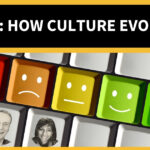My dear friend, Bryan Zerr, an integrally-informed consciousness teacher in Palm Springs, offers the following antidote to those who are stricken by the prospects of a Donald Trump presidency. I can attest to Bryan’s realization in Buddhist mindfulness and thought training, and appreciate his powerful application to current political events.
The US Presidential election seems to have caused a great deal of distress for many people. As such, it is an opportunity to evolve into a more integral and mindful perspective, and pull ourselves out of the negative aspects of our Green conditioning that can keep us stuck.
To do this we must strive to be more mindful of our interiors. We can learn to pause and investigate our fear, anger and negative thoughts and feelings in a way that minimizes our suffering, as well as positions us to be more effective and skillful in how we respond to whatever the new political situation confronts us with.
The way we we clamber out of unconsciousness and learn to manage our interiors is by empowering our Witness. With practice, we create enough space between ourselves and our thoughts and feelings to analyze them and no longer be a victim to them. We can see how they arise, and how they create so many different kinds of negative and irrational emotional states. We can watch ourselves create stories out of our imaginations, and then react to them as if they were the truth. As we wake up, we can realize how we project delusions into the future and make a different choice. We can instead, choose to disbelieve the assumptions we make that turn the results of this election into a disaster or giving it some desperate meaning that just isn’t here yet and may never be.
It is our evolutionary responsibility is to practice staying grounded in this moment, and to gain enough awareness to make watching our interior states a priority and to learn to manage them, or at least to control our responses to our reactions.
Ultimately we can even rewire ourselves, so that our reactions change to reflect our wisdom and our spiritual truth, instead of being driven by primal instincts to defend, survive and win. The science of neuroplasticity proves we can rewire the way our mind reacts, and we can cultivate enough present moment awareness that our unreasonable thoughts and emotions no longer have the ability to prevent us from seeing clearly.
So our current political experience is fertile ground for our practice. All these emotions: hopelessness, despair , fear, anger, doubt, disappointment, and all our stories about how bad things are going to be can be our most skillful teachers if we empower them to be.
We can use this situation to “know” our inner voice when it is caught up in making up assumptions and drawing conclusions about the future. To learn to stop our conditioned mind in stride as it starts to create negative fantasies of the future, and to laugh at our reactive tendencies to complain, criticize and condemn as our minds are so well trained to do.
We can meet our reactions and feelings with equanimity and reason. We can learn to remain more happy, peaceful and free from our self-created suffering as we navigate the world. It’s the potential of our Buddha nature, and it’s how we can stay in touch with the true wisdom and compassion that can guide us to skillfully respond to the challenges of our lives and the world.
From this place we can take the most effective action. Wisdom can flow through us, and we will know the best choices that will cause the least harm and have the greatest impact. We must act from our deepest aspirations and passions with loving-kindness and deep consideration.
So I like to ask myself, “What might the Buddha think?”
My guess is he’d be quite practical. What has really happened is there has been an election. Donald J. Trump won the Presidency, and since then the unfolding continues and we will just see what happens, but what this “means” is really an unknown. We honestly don’t have enough information yet to know how to feel — but of course that doesn’t stop us. We usually have instant reactions that are based on projections of events and assumptions of other people. It’s so important for us to see this.
Who are the people who voted for Donald Trump, and what does it mean that they made their choice? It was just a single action and it is just one part of their whole story, yet we often feel like we know those people enough to condemn them. Buddhist teacher Tara Brach calls this, “creating the unreal other”. She’s talking about the judgments we make about others, which creates a fantasy based on the meaning we give to the choice they’ve made, without knowing anything about who they really are. But these potential enemies are projections, and because of our negativity bias we often imagine them as extremists. This thinking is a great survival mechanism, but it’s also an unreasonable over-reaction that causes so much unnecessary pain and disconnection. People are more than just their opinions, and very few things about others are true in the ways that we expect.
Becoming free of these negative projections is a part of waking up. The future may be problematic and some people are to be reasonably feared, but are we going to react from the same level of consciousness that we are trying to rise above, the world of unconscious reactions and negativity that creates enemies and wants to criticize and find blame?
The Buddha would think that we can only know what will happen as time unfolds.So we can choose to continue to unconsciously play out our fearful thoughts and emotions, suffer and create more suffering, or we can consciously attempt to see our reactions and respond to them with discretion and discipline. We can use them as gateways to our liberation, to take control, disbelieve and dismantle them when they arise. We can comfort ourselves with our faith in the evolution of consciousness, and practice resting in connection with our presence and our heart.
Being liberated is being present, and cultivating the ability to stay present means neither projecting fearful fantasies into the future or even substituting them with hopeful ones. Our being wants to rest in the truth of the unknown and in the spaciousness of the present moment, without an opinion, and it doesn’t really find peace with our hopeful delusions either. There is no sacred need for security because there isn’t any security in this world of impermanence. Hope is supportive when your trust lies in something bigger than your attachment to certain outcomes. The path is to simply stop entertaining outcomes and stay present. To let go and allow what is there to be there, and act (or not act) skillfully in response. In embracing insecurity, we surrender into an honest peace and happiness based on trust and truth.
So how do we comfort ourselves and others, and allow all that is triggered without enabling more pain and suffering? How can we feel, and still wake up from the trance that keeps us believing our inner projections, habits of mind, and negative biases? The answer is meditation and mindfulness practice, cultivating the presence and the inner-strength to respond to your mind and train it to support you. Practice, practice, practice.
Of course we need to prepare for the reasonable possibilities of the future as they arise, but we can attempt to do it from this present moment with faith, equanimity, and from a place of inspiration and service rather than from fear and self-created suffering and delusion. It’s important that we ultimately strive to be free of motivating ourselves with negative emotion, so we can make better choices that will create the best possibilities for all of us, and we can actually love life along the way and be grateful.
Find more of Bryan’s teachings at: https://twitter.com/knowcomplaints






